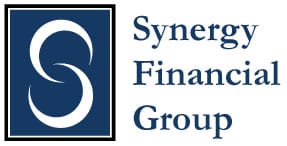But the clock still is ticking toward the day when distressed borrowers must resume making mortgage payments.
Some form of anxiety, stress, desperation, sadness or panic were in every one of their voices.
Financially strapped borrowers have been calling me. Text messages, letters, emails and phone calls are coming from their mortgage servicers. The messages conveyed their COVID-19 mortgage payment forbearance is ending soon.
So, what is your plan, Stan?
If your CARES Act forbearance started with your April 2020 payment, it ends with your March 2021 payment.
Now, Federal Housing Finance Agency Director Mark Calabria, regulator and conservator for Fannie Mae and Freddie Mac, has offered a timely and desperately needed lifeline for struggling mortgage holders. On Tuesday, Feb. 9, he announced Fannie and Freddie were extending COVID-19 related mortgage payment forbearance to 15 months.
It’s a temporary sigh of relief for borrowers with loans owned by Fan or Fred.
But what about those not under the CARES Act protection such as those with jumbo mortgages, portfolio loans, non-qualified mortgages and a small host of other types of financing?
D.C. has a $336,000 mortgage on her Orange condo with a 4.125% fixed interest rate. She’s been struggling to find consistent work since the pandemic hit to pay her $1,555 monthly house payment.
D.C. has the good fortune of receiving assistance from friends and her sister. Her mortgage servicer allowed 11 months of payment deferrals.
Then, the text came: “Immediate action required. The temporary COVID payment relief granted to you is expiring.”
She has to start paying her mortgage in March.
Using VA financing, retiree Amos McCallister and his wife purchased a one-story home in a 55 and over Sacramento-area community. His wife, who was disabled, died just 29 days later.
He moved into an apartment with his daughter and grandchildren, , renting out his new home for $2,150 a month.
But his tenant has paid just $500 in rent since April, protected by the state’s eviction moratoriums.
The clock is ticking as McCallister’s 12 months of VA forbearance comes to an end.
Will the Federal Housing Administration or Veterans Affairs Department follow FHFA’s lead and extend forbearance for another three months?
The FHA and VA said “further guidance” is coming soon.
If you are in forbearance, start a dialogue with your loan servicer.
What are your options? Can you add the deferred payments on the back end of your mortgage? What about modifying your house payment?
Fannie Mae gives borrowers five years to repay any advances they got from mortgage servicers for unpaid property taxes and fire insurance.
Forbearance will eventually come to an end, COVID or not.
If you are financially struggling, create a plan with multiple possibilities and multiple options. Make assumptions about income levels needed to pay back payment deferrals. How much savings do you have left to hang on?
Don’t be in denial. If necessary, consider an exit strategy like selling your home.
Freddie Mac rate news: The 30-year fixed-rate averaged 2.73%, unchanged from last week. The 15-year fixed-rate averaged 2.19%, down 2 basis points from last week.
The Mortgage Bankers Association reported a 4.1% mortgage application decrease from the previous week.
Bottom line: Assuming a borrower gets the average 30-year fixed rate on a conforming $548,250 loan, this week’s payment of $2,232 a month was $221 less than a year ago.
What I see: Locally, well-qualified borrowers can get the following fixed-rate mortgages with 1-point cost: A 30-year FHA at 2%, a 15-year conventional at 1.75%, a 30-year conventional at 2.375%, a 15-year conventional high-balance ($548,251 to $822,375) at 2.125%, a 30-year conventional high-balance at 2.5% and a jumbo 30-year fixed at 3%.
Eye catcher loan of the week: A 30-year fixed rate at 2.75% without costs.
We are ready to help you find the best possible mortgage solution for your situation. Contact Sheila Siegel at Synergy Financial Group today.







